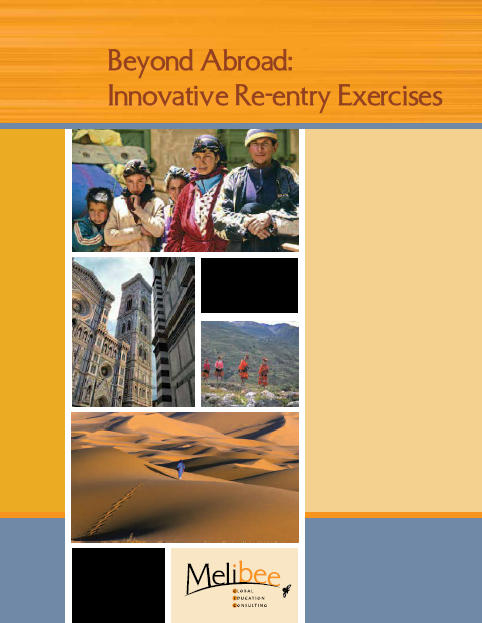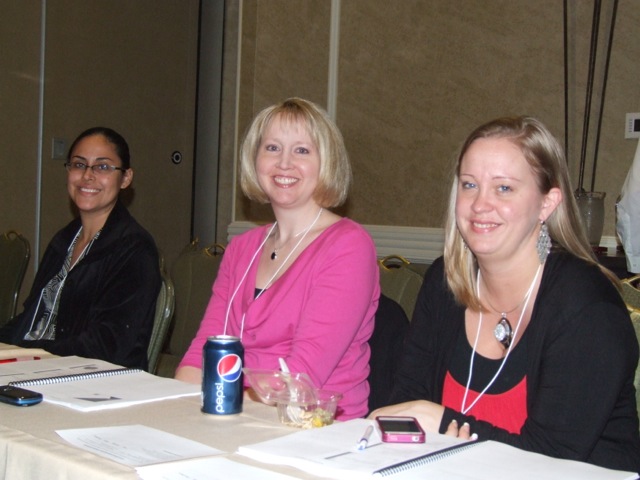Really want to make an impact in 2013? Here are sustainable ideas for a new year, courtesy of Melibee speaker Michael Despines.



Really want to make an impact in 2013? Here are sustainable ideas for a new year, courtesy of Melibee speaker Michael Despines.

The holidays are here. Here are Melibee's reflections for 2012. It has been an incredible year...
These gift ideas are from the heart - and perfect for those global citizens in YOUR life!

What does your name really mean? Melibee's Lisa Zenno explains how her parents picked her name and how it has provided opportunities for conversation across different cultures.

Searching for a job in our field can be frustrating - we get it. Check out these tips and resources direct from the Melibees!

Are you a foodie too? Read about the cultural lessons I learn preparing my first Bengali dish...

Who are you grateful for this Thanksgiving? Here is my poetic attempt at sharing my gratitude!

Re-entry programming on your mind? Can't bear the thought of another "pizza re-entry gathering?" We've got THE tool to help your students seriously reflect on their time abroad! And we've done it "Melibee style!"

What do the new Study Abroad 101 and IIE's Open Doors reports tell us about culture?

 The Study Abroad “provider world” has evolved over the decades that I’ve worked in the field. This often happens when folks who work in higher education see a problem in international education and solve it internally…and if they have an entrepreneurial spirit, they realize they have a product.
The Study Abroad “provider world” has evolved over the decades that I’ve worked in the field. This often happens when folks who work in higher education see a problem in international education and solve it internally…and if they have an entrepreneurial spirit, they realize they have a product.
This is very much the story of Terra Dotta, an idea borne out of working at UNC Chapel Hill and has been solving problems, for more than 200 clients a year, for more than a decade. Co-founders Garrett Christian and Brandon Lee also both have international education and tech experience, making them the right people to launch a tool that offers so much to our field.
I stopped by the April 2012 Terra Dotta U event in Charlotte, N. Carolina and it was quickly evident that there are swarms of users who are much more proficient in the technical talk of Studio Abroad (now Terra Dotta Software for Study Abroad) than I. (For those of you who don’t know, Studio Abroad is a web-based software that allows you can maintain your own website, keep your program brochures online and up-to-date, accept applications online, organize data, and mitigate the risk associated with international travel and living.) Those attending were deeply engrossed in the new version of Studio Abroad, gabbing in a language that I struggled to understand at times. Acronyms. They can be tough! 
My observations, as a “newbie” to this conference is that besides being very welcoming and adjusting to some new lingo, it was clearly a strongly networked group who deeply understood how to ask the right questions about the ins and outs of Studio Abroad as a tool to increase efficiency at their own campuses/organizations.
There was a session on New Implementation for the true ‘newbies’ of the group. The session covered the story of one university’s path to signing up for Studio Abroad – and it is one that will be familiar – exponential growth in faculty led study abroad, staffing challenges, the need for a centralized process. The presenter spoke about how important it was for them to “change the culture of HOW we do things” on campus.
Another session, Troubleshooting Implementation, was designed to keep things as simple as possible for both students who are on the receiving end of web based forms and staff who are looking to maximize efficiency.
There were sessions for power users – those who could easily train their colleagues. There was also a less tech focused sessions, Scholarship Programs, given by Claire Valdivia of the University of Maryland, College Park which guided participants through how to use the system to track scholarship applicants and ratings.
 I spoke with an administrator who described using Studio Abroad as “the Cadillac” of data management for his campus. He expressed that, at least for his large campus program, it saves him time and is very convenient. His campus also agreed to allow some faculty leading programs abroad to have access to some data in the tool and he emphasize that they also found it rather intuitive. Because his campus is quite large and they choose to utilize many of the features of Studio Abroad, they do have a ¾ full time equivalent person on campus to oversee the program. Some may have concerns about needing staff to keep things running smoothly, however my opinion is that the first time you don’t have your reports and documentation in order during an emergency abroad, you will not be able to facilitate important communication when it is absolutely needed. Needless to say, any lawsuit will cost much more to a program provider than a staff person who ensures that the data is organized and scrubbed – and readily available anywhere in the world. 24/7. That’s what it takes these days to run study abroad safely and effectively.
I spoke with an administrator who described using Studio Abroad as “the Cadillac” of data management for his campus. He expressed that, at least for his large campus program, it saves him time and is very convenient. His campus also agreed to allow some faculty leading programs abroad to have access to some data in the tool and he emphasize that they also found it rather intuitive. Because his campus is quite large and they choose to utilize many of the features of Studio Abroad, they do have a ¾ full time equivalent person on campus to oversee the program. Some may have concerns about needing staff to keep things running smoothly, however my opinion is that the first time you don’t have your reports and documentation in order during an emergency abroad, you will not be able to facilitate important communication when it is absolutely needed. Needless to say, any lawsuit will cost much more to a program provider than a staff person who ensures that the data is organized and scrubbed – and readily available anywhere in the world. 24/7. That’s what it takes these days to run study abroad safely and effectively.
Another attendee indicated that there was no need to reinvent the wheel within her organization when there was already a tool out there to track travelers. This is increasingly necessary for organizations sending researchers, students, faculty and administrators out into the world.
Today, I spoke with a colleague who attended Terra Dotta U this past spring. I asked for his reflections with several months behind him to consider all he learned at the conference. He commented that the biggest single takeaway was perhaps realizing the wide range of innovative ways that users are leveraging the tool – from query watches sending automatic emails to tracking and sharing course equivalencies to handling non-standard submissions such as program proposals.
If you are a campus with a growing study abroad population and imagine that you will soon get to the day where paper files or excel spreadsheets will not do the trick, or you envision your paper applications igniting a major inferno at the drop of a match, I’d encourage you to explore the resources that I had the pleasure to learn more about while at Terra Dotta U. You can learn more about their upcoming 2013 conference here!
Disclosure: I was not paid to write this piece. However, I did have a press pass to cover this event and was grateful to spend a few hours in Charlotte with the attendees.
You must be logged in to post a comment.